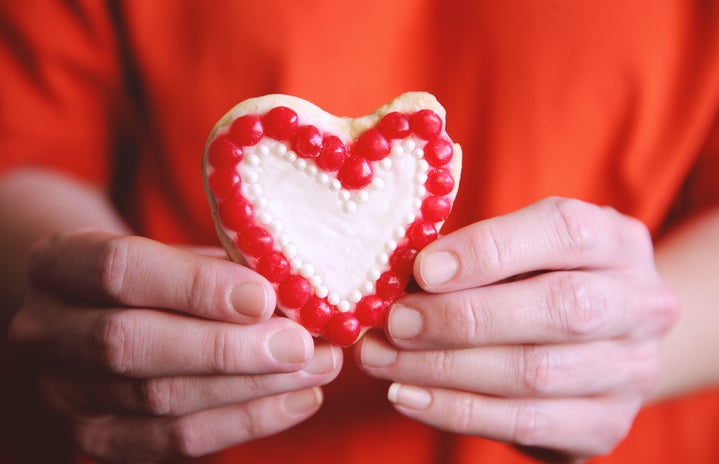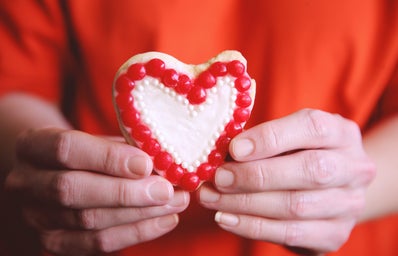Attaching ourselves to our past— the “permanence” that we know— is like trapping ourselves in a cage. Yet, many of us stay in this cage because we fear what’s outside of it. In late 2012, my friend Jasmine* and I sat in the backseat of her family friend Susan*’s car as we drove through the foliage in the Berkshires, Massachusetts, discussing who would win that year’s presidential election. It was a bright day for liberals; many were optimistic that then-President Obama would be re-elected to his second term. But Susan said, “if Obama got re-elected, we’d have to kiss the old America goodbye.” Her voice was jaded; she supported Republican presidential nominee Mitt Romney. I asked her, “Then why not kiss the old America goodbye?” I believed change was inevitable and breaking away from the old ways could open doors for the country and its people. If impermanence is our permanence, then we need not pursue permanence in the first place. It’s time to let go.
(Image credit: Fodor’s Travel)
Our sense of permanence can serve as refuge from life’s uncertainties. It can anchor us when we approach life’s crossroads and crises, both of which can challenge our identity, our core. After reflecting on the conversation I had with Jasmine and Susan years later, Susan’s fear is easier to sympathize with. Perhaps her fear was neither Obama nor the “new America,” but her role in the change happening before her. She might have feared the sacrifies she would have to make; the worst sacrifices are often those we least expect or are prepared to make. She might not have been able to imagine a future that many hopeful liberals could envision. Change extends beyond our political beliefs and affiliations. Sometimes, we get questions instead of answers. What if our compromise leads to regret? What if our sacrifices aren’t worth it? Questions linger.
In “Let It All Go,” Birdy and Rhodes sing, “If we’re strong enough to let it in, we’re strong enough to let it go…” Although the beginning has an end, an end also has a beginning. We can be reluctant to change, especially if the past means something to us. But chasing the past is like reflecting on a future that we have not yet experienced. Life is not a contract; it can make empty promises and break our hearts— and more than once. Moving on and forward requires a strategy. Resistance should give way to resilience. Although the former can degrade our spirit, the latter can build character, which can stand the test of time.
In an inconsistent world in which nothing seems to last, getting comfortable with uncertainty is a skill. To break away from what once was and move on to what is or would be often leaves us with questions. Our unwavering belief today could be our source of confusion tomorrow. The regrets— the “could have,” “should have,” and “would have”— can weigh us down. Attachment can cause resentment, confusion, uncertainty and fear. But we can find beauty in the chaos. In Japan, the concept wabi sabi guides us through different phases in life; it’s a cycle that accepts impermanence and embraces change. Whether it’s a child growing up or a relationship that gradually grows or fades, wabi sabi highlights the journey of impermanence. Change is worth embracing if we know how to face it.
Impermanence can foster permanence as well. The lessons we learn transcend places and time. My childhood in Japan normalized change. To attend international school meant to befriend expats who had signed contracts that determined the number of years they could stay in Japan; many left in just a few years. Although my friends and I knew this, we became close anyway; a decade later, many of us remain close friends. Impermanence need not mean loss; it could foster nostalgia and build connections for a lifetime. Likewise, at boarding school, the ephemeral experiences had a lasting impact on my values. At school banquets, my friends and I would dress up, put on makeup, and paint each other’s nails. We’d place perfectly folded napkins across our thighs, serve each other Caesar salad from a table with vases of roses. Our smiles became a little less genuine as we stared at the cameras, finding the perfect angles but not knowing why we were smiling in the first place—to us, that was what confidence was about. Part of me wondered what these moments would mean for me in the future; another part of me feared leaving the bubble that I could call home. As I sat in the assembly hall with my friends, feeling insecure and trying to fill my void, our school head walked to the podium and said, “You have a seat at the table,” and added, “Girls can do anything.” The school imbued me with values that has stayed with me even after I’ve washed all my makeup from my face and when my dresses no longer fit. And for that, I’m forever thankful. Although our shell dwindles with time, our core remains. That’s the kind of beauty that stays with us.
If change is constant, then it’s time to let go. Attaching ourselves to permanence is to chain ourselves to the past. Our sense of permanence can protect us from the unknown. We are often left with questions when we break away from the past and look to the future. But impermanence can also create a sense of permanence. Whether we immerse ourselves in life or keep it at arms’ length, we can find our version of permanence through ebbs and flows. Whether it’s a place, person, or time, distance is beautiful; a silent goodbye may suffice for closure. It allows us to start again, until the road reaches another blind alley.
*Pseudonyms used for privacy.


